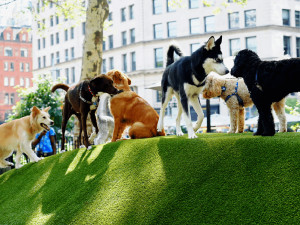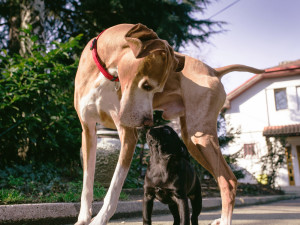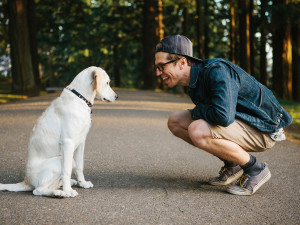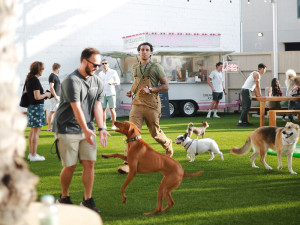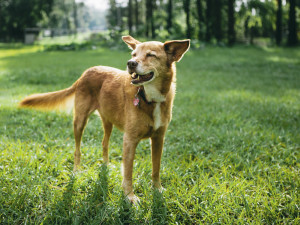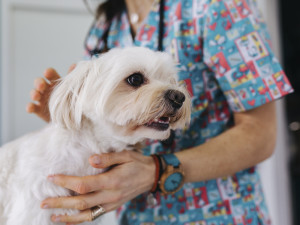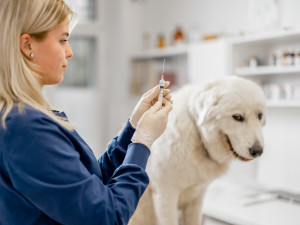The Unexpected False Advertising of Public Dog Parks
These apparent canine meccas can pose real risks to your dog’s overall safety.
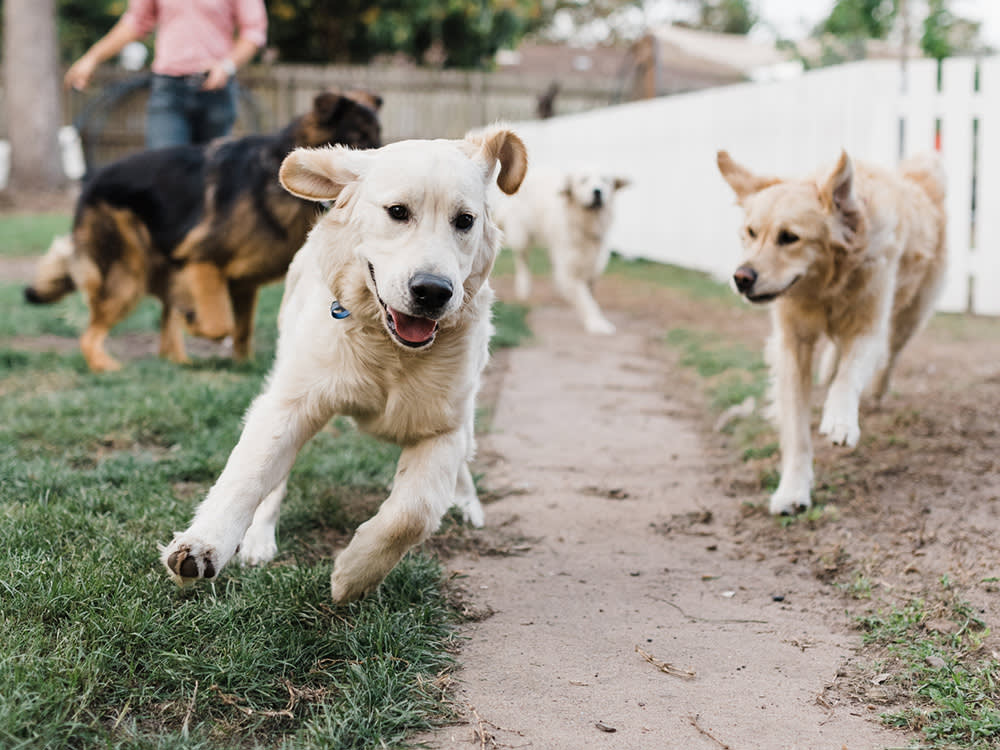
share article

Your pet wants you to read our newsletter. (Then give them a treat.)
If Subway has taught us anything, it’s that not everything is what it advertises itself to be. These realizations can be even more unpleasant than discovering the sandwich you’re eating was actually made on a chemical-filled substance that can’t legally bedefined as breadopens in a new tab. Case in point: Public dog parks might seem like an obvious place for dogs to safely chill with one another, but many experts warn against them. The truth is that these seemingly perfect puppy-hangs present a slew of possible threats to both their mental and physical health and safety.
“While dog parks can seem like an ideal place to bring your pet for socialization and exercise, there are potential risks to consider,” says Charlie DiBono, trainer and founder of Body and Mind K9opens in a new tab. “If you were to take a five-minute video of dogs at a park, you are very likely to see an array of issues. From lack of boundaries, over-arousal, and dogs being bullies without their owners understanding what’s happening,” he adds.
Behavioral Issues Can Start at the Dog Park
DiBono warns that public dog parks are often the birthplace of behavioral issues for many pups, depending on the individual dog’s temperament and previous experiences. For many, especially those prone to anxiety, the overstimulation from all those strange humans and animals running around can feel chaotic for these dogs. In response, they might become fearful, which escalates their anxiety. This is assuming every other dog in the park behaves perfectly. If your pup has a negative experience with another at the park, they may start to develop serious reservations about meeting any other dogs.
The concerns go beyond situations that are recognizably hostile. Per DiBono, not all dogs have compatible play styles. Although this is completely normal, it does mean that locking a bunch of dogs in an enclosed space together is probably a bad idea. Think of the dog park as the Thanksgiving dinner table and the different play styles as all of your family member’s varying political opinions; forcing them to coexist for more than a few minutes is going to cause arguments. “Some dogs may prefer to play rough and tumble, while others may prefer more gentle, subdued play,” DiBono says. “When dogs with different play styles interact, it can lead to misunderstandings and conflicts.”
Maybe this doesn’t apply to you because your dog actually loves the park and gets wild with excitement when you pull up to one. Well, here comes some bad news: That apparent enthusiasm might be something a bit more upsetting. “As [pet parents] arrive at the park their dogs wiggle and whine to get out of the car, rush into the park, and hit full-speed zoomiesopens in a new tab once in the gate,” DiBono explains. “While it may look like our dogs are happy and excited, the truth is they are overstimulated and the energy they bring into the park can quickly cause a fight.”
Some Issues Start After You Leave the Dog Park
He adds that even seemingly positive experiences might cause behavioral issues that start to show up once you leave the park. For example, your dog will now want to meet every dog they come across, leading to leash reactivityopens in a new tab or pulling. Plus, in the words of all my friends’ parents growing up, you still have to worry about that bad influences. “Dogs learn very quickly from one another,” DiBono says. “You’ll find a lot of problem-behaviors are picked up from other dogs at the park, specifically things like barking, fence fighting, and digging.”
Now, let’s say your pup is a true social chameleon unaffected by the influence or consequences of interacting with other dogs. Unfortunately, there are still physical health concerns. Back to the Thanksgiving comparison: Just like gatherings with your family since 2020, your peace is interrupted by those who aren‘t as keen on getting vaccinated. “Not all dogs at the park may be vaccinated or free of contagious diseases, and your dog could be at risk of contracting illnesses such as kennel coughopens in a new tab, parvovirusopens in a new tab, or giardiaopens in a new tab,” DiBono warns. He adds that pretty much any disease that is transmitted from dog to dog can be contracted at a dog park — and even fully vaccinated pups can be at risk.
But all hope is not lost, and you definitely don’t need to hide your pet from the world; that creates its own catalog of problems. Instead, DiBono offers a few solutions that will minimize the risk of combative or unvaccinated encounters that’ll still provide opportunities for socialization and exercise for your pup. The first is to schedule playdates with other pet parents you’re familiar with and whose dogs you know get along with yours. Another option is to attend dog training or obedience classes. These will not only provide structured socialization but also help improve behavior. Additionally, some pet stores offer doggie daycare opens in a new tabor indoor play areas that could be a low-risk alternative to parks, DiBono confirms.
For pet parents who really dig the dog park experience and are hesitant to let it go, DiBono recommendsSniffspotopens in a new tab. The app is essentially Airbnb for dog parks, allowing users to rent land by the hour for more controlled playing. DiBono adds that there are also private parks in which all dogs are behavior-tested to limit any adverse encounters. Ultimately, when in doubt, trust your gut. “Your dog’s safety comes first. If you don’t know if the dogs you’re introducing them to are safe, it’s not worth risking it,” DiBono says.
DOG PPLopens in a new tab, the first “canine social club” in Los Angeles, is an example of private dog parks that are doing the work to address some of the issues with public dog parks. They require members to provide records of vaccines and spay/neuter if the dog is over eight months old. DOG PPL also has “rufferees” who monitor new members for how well they play with others. The park also offers training advice to dog parents so they can work on any issues.
“When you’re at a dog park and you’re with the right people, a real sense of community and connection between human and dog happens there,” DOG PPL co-founder Liam Underwood told The Wildest in a 2021 interview. “It’s magical. Time gets lost sometimes when you’re around good people and good dogs. That’s what we wanted to harness — that connection.”
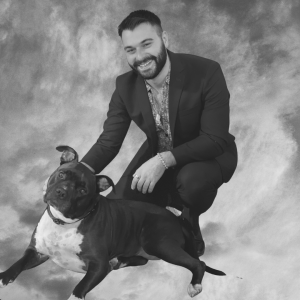
Sean Zucker
Sean Zucker is a writer whose work has been featured in Points In Case, The Daily Drunk, Posty, and WellWell. He has an adopted Pit Bull named Banshee whose work has been featured on the kitchen floor and whose behavioral issues rival his own.
Related articles
![A dog outside with his mouth open coughing]() opens in a new tab
opens in a new tabLaryngitis in Dogs: Causes and Treatment
Vet advice on when you should be worried.
![Dog laying down in dog bed and coughing]() opens in a new tab
opens in a new tabWhy Is My Dog Coughing?
Seven reasons to be concerned when your dog is coughing.
- opens in a new tab
Does Your Dog Need a Flu Shot?
“Sick as a dog” isn’t just a phrase.
![Veterinarian holding syringe with vaccine near big white dog in clinic]() opens in a new tab
opens in a new tabTiter Tests: An Alternative to Annual Vaccinations?
Learn about how this test can help protect your pup.
![Australian shephard and Corgi mix play fighting outside]() opens in a new tab
opens in a new tabTurns Out Humans Kind of Suck at Recognizing the Signs of Dog Aggression
A PSA to pay better attention to our best friends’ body language.
![A dog coughing]() opens in a new tab
opens in a new tabKennel Cough Is the Worst. Here’s What You Need to Know About It
You can prevent your pup from catching this super contagious disease. (Hint: There’s a vaccine.)
